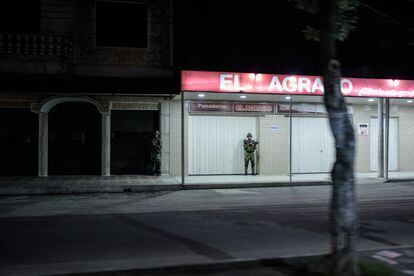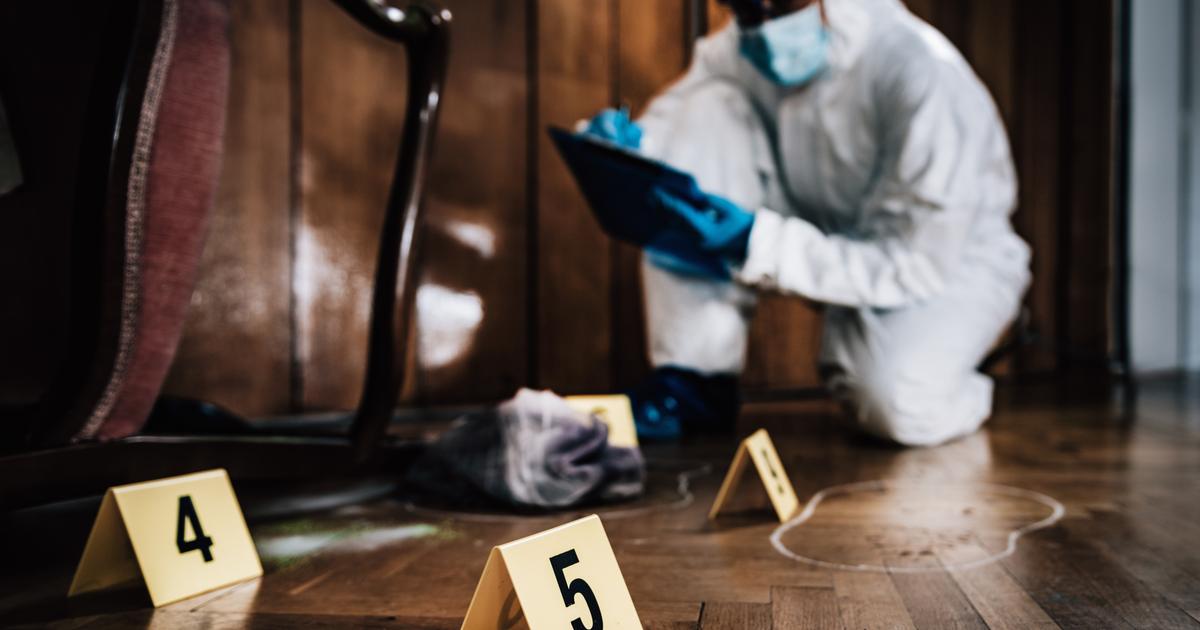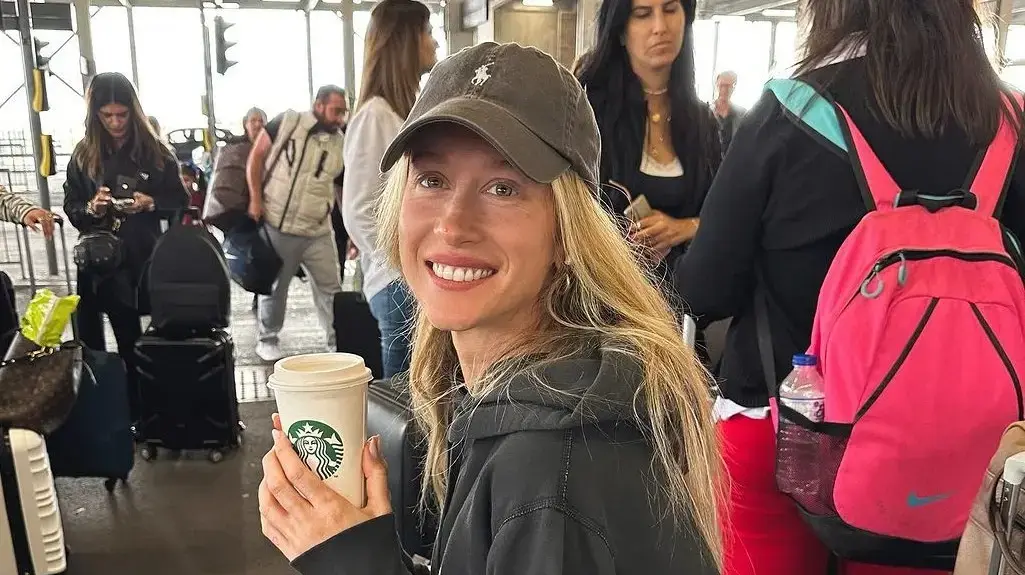Night has fallen.
Colombian army tanks advance along a dirt road in the dark.
Shapes loom menacingly through the bushes and test the soldiers' nerve.
“This is where most of the killings have taken place,” says General Diego Ducuara from the country's special forces, indicating a no-go neighborhood.
Saravena has one of the highest homicide rates in the world, amounting to 181 per 100,000 inhabitants.
The last remaining active guerrilla force in Colombia, the National Liberation Army (ELN), and dissidents from the Revolutionary Armed Forces of Columbia (FARC) rubbed along together until recently but, since the start of 2022, they have been fighting a hand-to-hand -hand battle throughout the Arauca region, with the main focus on this oil-producing town on the Venezuelan border.
In this city of 43,000 inhabitants, no one is destitute and there are no thieves.
A cab driver can leave their window open and no one will steal their radio, which is not something that can be said of the capital, Bogotá.
Nobody here will snatch your cell phone if you pull it out on the street.
Anyone who dares will be found dead the next day, their crime flagged up by a sign reading “thief.”
Military checkpoint during the night on a road in Saravena. Camilo Rozo
This year, Saravena has become one of the most violent places on Earth, second only to Ciudad Obregón in Mexico.
The authorities have reported 78 murders in the municipality, although it is likely that the figure is higher, with some escaping notice.
Almost all the murders have the same modus operandi: two men on a motorbike shoot an unsuspecting pedestrian walking down the street at point-blank range.
Often there are no messages left with the body.
They are not needed.
Everyone knows that they are due to the war between the FARC and the ELN.
Questioning the Colonel on how many murders have been solved, he replies, “None,” as he climbs into an SUV protected by a helmet and a bullet-proof vest.
Behind him are tanks and vehicles carrying soldiers armed with rifles and hand grenades.
So begins a one-hour nighttime patrol that lends the place an air of superficial security, reflected by a child licking ice cream on a terrace as they watch the tanks pass by.
But there is another reality, lurking beneath the surface;
the one of a corpse whose funeral nobody attends for fear that they will end up the same way.
In Saravena, they kill you alone and bury you discreetly.
A cloak of silence descends in the same way as happens with the 'Ndrangheta mafia in southern Italy.
The Colonel and his men stop the driver of a car driving without lights through the center of the city.
-Where are you going?
- Home, says the driver.
I've just come from work.
I just work, work and work and keep my mouth shut.
The man zips his lips closed.
Ducuara arches his eyebrows.
He knows that the population will not reveal anything for fear of being found dead the next day with a sign reading
snitch
on their corpse.
Saravena was founded 50 years ago around the Colombian Institute of Agrarian Reform.
The place is so new that the first baby to be born here is just middle-aged.
Those who have lived here the longest feel like they belong to the same tribe.
The violence is not yet history.
It is still fresh, forming a part of everyday life: in that alley they killed four, on that sidewalk seven, and on that sidewalk eleven more.
The vehicles once bombed by the guerillas to terrorize the population are still there, burned-out shells scattered across the wasteland, like museum pieces.
Saravena is a militarized town.
In certain areas, there are soldiers stationed every one or two blocks.
Camilo Rozo
The Colonel's SUV passes sidewalk cafés and bars, discos with phosphorescent lights, restaurants, stores open after hours and a volleyball championship that goes on into the night.
Saravena has the air of a cosmopolitan city.
But no one bats an eye at the army's imposing presence;
it is part of the landscape.
Unlike the rest of the country, there is no paranoia about being robbed.
But the inhabitants are as likely as not to witness a shootout on any given evening.
For the criminal gangs, controlling the city means having privileged access to illegal border crossings into Venezuela.
Arauca does not grow coca crops, but tons of cocaine come through here every year and end up on the other side of the border.
From there, it is sold to the rest of the world.
A Marxist-Leninist guerrilla group, the ELN has cultivated a strong presence here and for many years their control went unchallenged.
But when drug exports soared, the FARC dissidents gained enough power to contest the NLA's dominance – these are men who, after the FARC signed a peace treaty in 2016, ignored the demobilization order and took their expertise into the drug business.
For a while, the ELN and the FARC dissidents coexisted in relative peace.
In Saravena, the FARC controlled prostitution and gambling establishments, extorting money from merchants in specific neighborhoods.
They shared the border crossings over which the cocaine was trafficked.
However, the power balance was rocked at the start of 2022 and the fallout has turned the town into a morgue.
According to Colombian military sources, the ELN is wiping out the FARC dissidents who have taken refuge in the savannah to try to buy time.
Completing the triangle in this tale of violence is the army, which is fighting both the ELN and the FARC with helicopters, tanks, US weapons and more than 8,000 soldiers – a force far greater than that of the insurgents.
But the ELN is so deeply rooted in the local community that it is far from easy to defeat.
It administers justice by punishing criminals, mediates divorces, establishes paternity benefits and settles conflicting inheritances.
If someone in Saravena has a problem, they don't call the emergency services.
The ELN is the go-to arbitrator.
The military man in charge of this hornet's nest is Major General Jorge Eduardo Mora López, also a trained member of the special forces.
He offers a firm handshake and a hearty slap on the back despite the fact that his unit's motto is “Confidence kills.”
“The ELN manages the masses with a very well-structured political strategy,” he says.
“They know how to manipulate the public.
They play with the heart and mind and they have a lot of support.
They are a very special organized group, like ETA [the Basque terrorist group].”
With the help of a drone, soldiers patrol one of the oil pipelines passing through Arauca.
Camilo Rozo
The FARC lost its ideals somewhere along the way, Mora explains, but the ELN did not.
In fact, it took advantage of the fact that, during the era of former Colombian president Álvaro Uribe, the government focused on the FARC in order to grow.
Right now, they act as a very real shadow authority.
Their business is in and around Saravena, and their commanders live undercover in Venezuela.
The state presence is conspicuous in Arauca, a region that produces 17% of Colombia's gas with 284 kilometers of pipelines running through it.
But it is unclear to what extent the government apparatus is effective.
Citizens have to deal with the taxes and laws of the Colombian government as well as the parallel jurisdiction of the ELN.
And, if they are very unlucky, they also have to keep the FARC dissidents happy.
“Whoever controls Saravena, controls Arauca regarding the armed groups,” Mora adds.
Since the start of the conflict, the people here have seen the groups massacre one another, resulting in a total of 169 homicides.
There are 29 Venezuelans among the dead and 20 more unidentified corpses waiting in refrigerators.
When the legal deadline for disposing of them is met, they will be buried in unmarked graves.
-Major General, how many of those dead could be ordinary citizens who have nothing to do with the armed groups?
-Most of the homicides are related to the ELN.
Innocent deaths?
Yes, perhaps there are some, but I would say few.
The commanders stress that the military put their lives on the line in this cross-combat.
Two young soldiers lie in the small hospital that serves Colonel Ducuara's regiment, wounded by gunfire.
They were ambushed by a group that killed two comrades.
"Hello!"
the boys say with smiles, as if amazed to find themselves still alive.
Colombian cities are often misunderstood, and Saravena is no exception.
Bogotá is nicknamed “the fridge,” despite the fact you never need to get into winter clothes.
Medellín has been dubbed “
metrallo
,” or shrapnel due to the era of Pablo Escobar's cartel, though in fact, it is also a city of culture.
Saravena... Sarabomb.
Stigmas shape everyday life in Colombia.
Wounded soldiers at the Saravena military base hospital.
Camilo Rozo
Yehin Cañas fights to combat the stigmas and misconceptions.
In the mornings, she works in her erotic sex toy store;
in the afternoons, she is a presenter on Araucana TV.
And, once a month, she organizes something she has called Cultura al Parque, a fair for entrepreneurs.
Days before the fair took place in May, a 10-year-old boy approached her.
First, I offered her feet made by her grandmother.
Then he grew suspicious of the journalist's ID of her hanging around her neck of her:
-You're not from family welfare, are you?
he asked, referring to those in charge of prosecuting child labor.
The social control wielded by the armed groups means that children can wander about at night without fear.
Adults leave their front doors open.
But Yehin, like the child, is constantly on the alert.
You never know who you are really talking to.
She has been organizing this start-up event since January, determined to turn it into a message of peace.
However, when it was inaugurated, two people were killed in the vicinity.
Now it is purely a young entrepreneur event where everything from Venezuelan
arepas
– corn pancakes – to crafts made from plastic bag waste are sold.
“In the midst of an absurd conflict, and with the government turning a blind eye, it is a way to show that we want peace, tranquility and harmony, and we want to achieve it through dialogue and culture,” she says.
When she was young, Cañas went to Bogotá to try to become an actress.
A few years ago, she returned to Saravena despite the conflict.
She is convinced that people have to build spaces that generate normality.
But the borders and front lines dividing the armed groups are uncertain, the presence of the groups pervasive.
They contaminate the air and are hard to ignore.
Day follows night.
The tanks have gone to bed and Saravena's war imagery vanishes.
What the soldiers saw in the dark was the so-called Hugo Chávez neighborhood.
The authorities believe that many of the ELN militiamen are in hiding here.
Saravena's inhabitants, on the other hand, consider it has to do with stigmatization, of creating an internal enemy, and seeing Colombians themselves as a threat.
-We are asked: Where do you come from?
You give the address, the name of the neighborhood, and at once you're labeled a guerrilla.
Monchi, a social leader, tells us that the neighborhood was built 10 years ago on illegal land by people who had been displaced by the armed conflict.
Poverty, lack of education and opportunities mean teenagers in the neighborhood are tempted to take up arms.
The Saravena bike path ends where the Hugo Chavez turf begins.
Both the authorities and locals from other neighborhoods recommend a policy of no entry.
This is Comanche territory.
But, as an insider, Monchi believes the distrust is mutual.
No one here is going to raise their arm to stop the SUV in which Ducuara is traveling and ask for help.
The previous night, the soldiers saw the Hugo Chávez locals as suspicious shapes crouching in the shadows while the locals saw the soldiers as shadows with rifles.
An impenetrable glass barrier separates the two.
This report has been produced in a collaboration between EL PAÍS and FRANCE 24.















